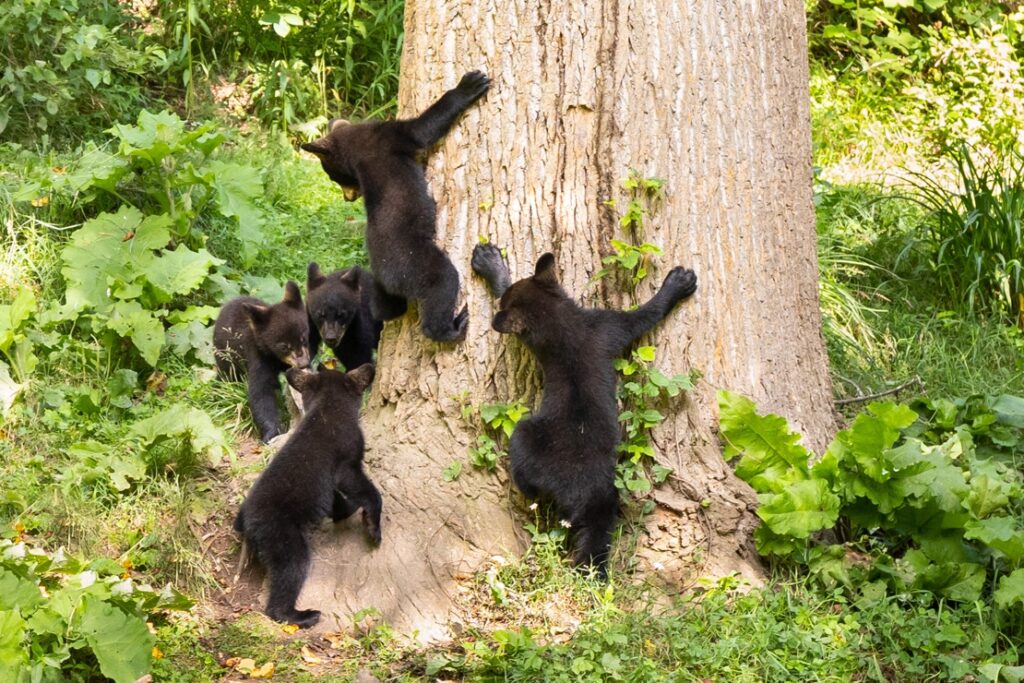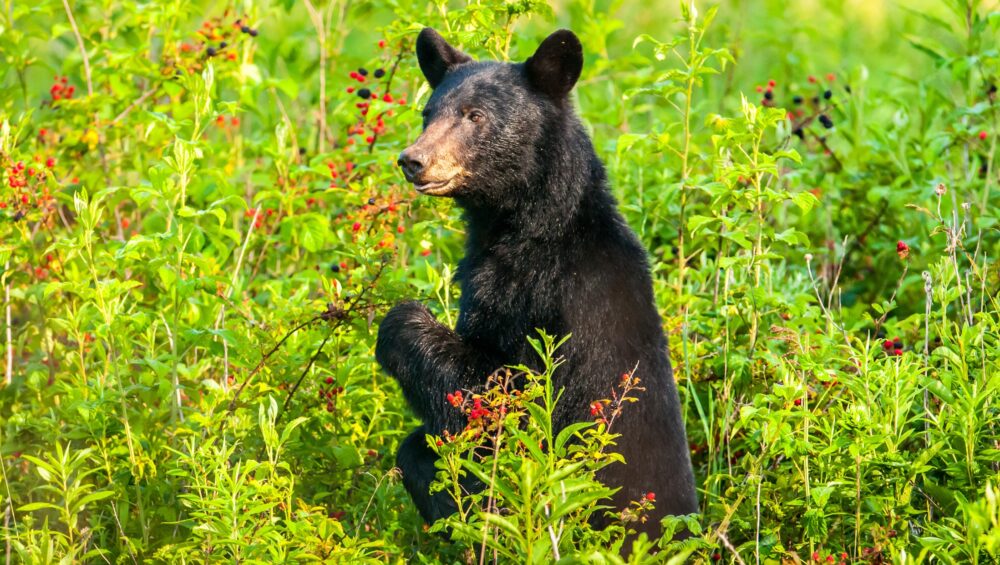The American Black Bear is the iconic inhabitant of the Great Smoky Mountains. No visit is complete without picking-up a bear souvenir and trying to site one while driving a scenic byway. But have you ever wondered what the bears are doing while you are looking for them? Most likely, if they are not sleeping, they are busy foraging for food. This is particularly true for female bears who are nursing their cubs.

So, what are they eating out there in the woods and fields of the Smokies? Black bears are omnivorous, meaning that they are opportunistic feeders who will eat a variety of things, including vegetation and meat. In the Spring when food is scarce, bears may eat grasses, inner tree bark, insects, and insect larvae. They will tear apart rotting logs and overturn rocks looking for invertebrates. Bears will also feed on carrion that they come across. They will follow the food sources that become available throughout the year such as blackberries, cherries, acorns, and walnuts.
Black Bears are the smallest North American bear, but they have the keenest noses in the park. Bears rely on their sense of smell for finding food. It is thought that they can smell a food source over two miles away! Because of this it is always important to follow proper food storage protocols when hiking and camping to help minimize human and bear interactions.

While you enjoy your visit to the Great Smoky Mountains, don’t forget to respect the wildlife and the wilderness around you. Bears and the other inhabitants of the area are wild animals and approaching them is dangerous for both humans and the animals. Photographs and videos in this article were taken with appropriate telephoto/zoom lenses while maintaining a safe distance from the subject.
Video of black bear digging up a yellow jacket nest to eat the larvae.
References:
https://www.nps.gov/articles/000/american-black-bear.htm
http://www.bearconservation.org.uk/eastern-black-bear/
https://www.nwf.org/Educational-Resources/Wildlife-Guide/Mammals/black-bear
https://www.chesapeakebay.net/discover/field-guide/entry/american-black-bear
